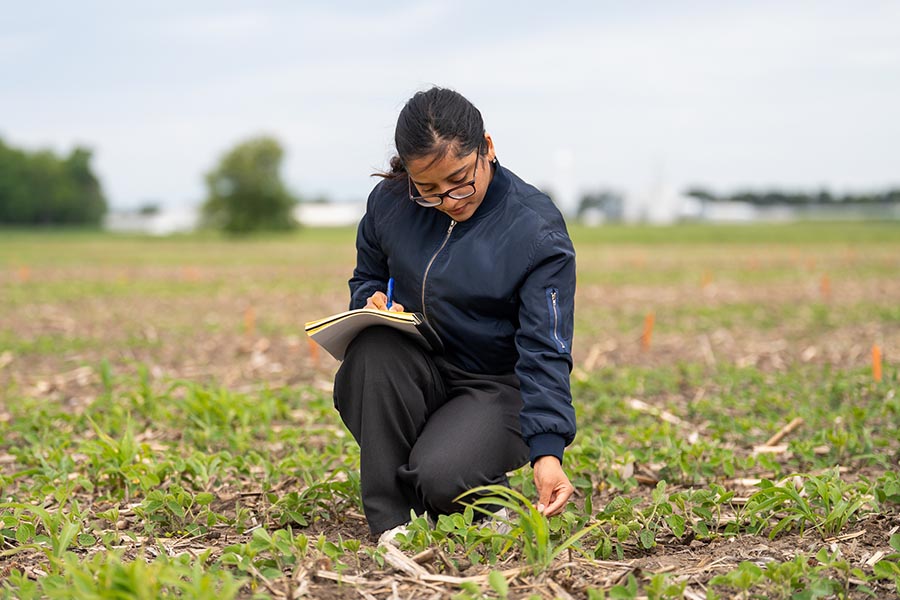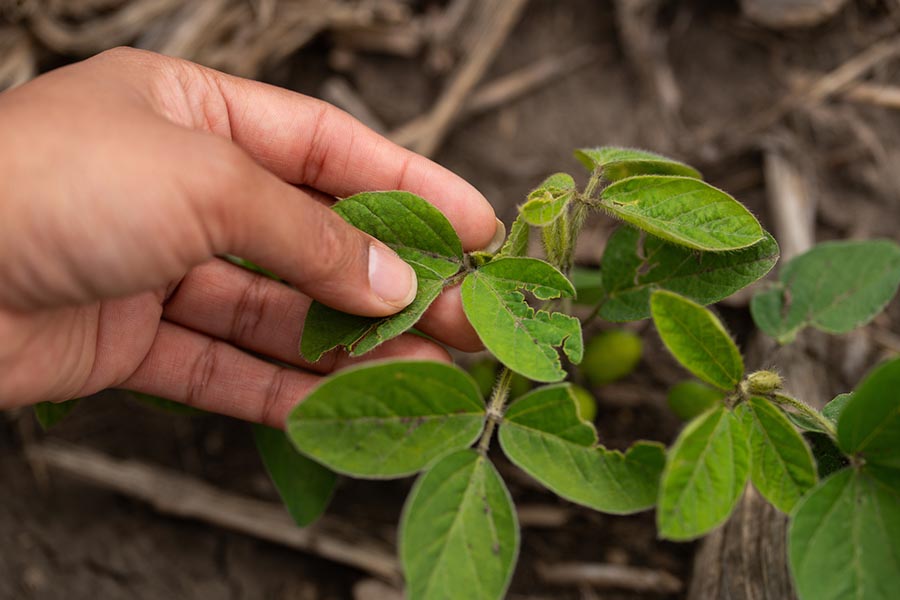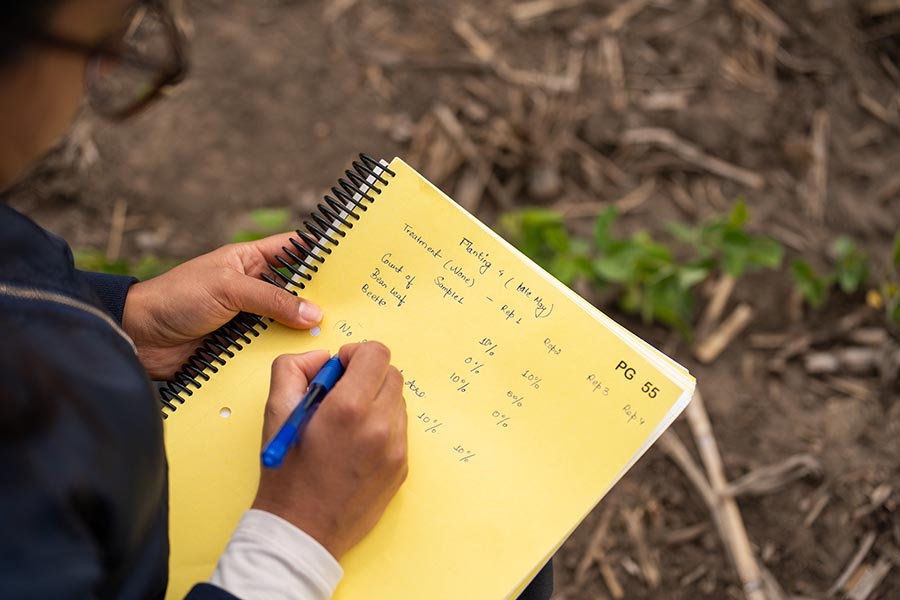Sadhana Chhetri - Graduate Ag Research Spotlight
I feel lucky to be in this lab, it’s the best.
- Sadhana Chhetri, Master’s Student in Entomology
The student
Sadhana Chhetri was a city kid, born and raised in the busy capital of Nepal, Kathmandu. So, when she moved to a rural part of the country to start her bachelor’s in agriculture, it was something of a culture shock – when she arrived, she couldn’t even tell the difference between a rice field and a wheat field.
“It was a completely different world to me,” Chhetri says. “But it was exciting.”
The university was in Pokhara, which Chhetri says is one of the most beautiful places in Nepal. “Surrounded by mountains and serene lakes, studying there felt like being in a postcard,” she says.
Moving to West Lafayette to start her master’s degree in entomology in 2022 was another dramatic change, though some of the landscape felt similar to the flatlands of Nepal.
“In many ways, it still reminded me of another part of my country, which felt surprisingly like home,” she says.
The research
Studying agricultural systems, Chhetri found herself gravitating towards how insects affect crops. When it came time to pursue a master’s degree, she set her sights high, creating a list of the top agricultural universities in the U.S. That journey led her straight to Purdue, and to one of the leading voices in entomology, Dr. Christian Krupke.
“I saw he was interested in the same things I am, especially insect pest management with a strong emphasis on sustainable, integrated pest management strategies, so I emailed him, and we connected over our shared interests,” she says. “It was exciting to find someone whose work aligned so closely with my passion for protecting crops in a way that’s environmentally responsible and scientifically grounded.”
She’s now a third-year master’s student, working on research on how pesticides perform in soybeans under varying environmental conditions. She combines fieldwork at Purdue’s research farm with lab analysis, collecting plant and soil samples for pesticide residue testing.
“I feel lucky to be in this lab, it’s the best,” Chhetri says. “Dr. Krupke is an incredible mentor. He challenges you professionally but also reminds you to take care of your wellbeing. That balance means a lot.”
In the summer, when Chhetri and her lab mates go into the field to collect samples, everyone helps each other out, no matter how busy they are, she says.
“It’s like a home,” she says.
Opportunities
During her time at Purdue, Chhetri has been involved in the Entomology Graduate Organization (EGO), serving in various leadership positions, including vice president. Through EGO, she’s organized workshops, fundraised, and participated in social events with other grad students and professionals.
“The organization really helps you build your network,” she says.
She was also recently elected vice president of the Nepali Society at Purdue (NEPSAP), a student organization that supports community among Nepali and Nepali Americans. The group recently gathered to celebrate Nepali New Year – because Nepal uses the Bikram Sambat calendar, which is 57 years ahead of the Gregorian calendar, the group rang in the year 2082.
Future plans
Chhetri is likely to continue with her studies at Purdue; she has an offer to start a PhD in entomology in the fall. After that, the future’s wide open. She may pursue a faculty position or work in industry. She may return to Nepal and use the extension skills she’s gained at Purdue to support farmers.
As of now, she enjoys life in West Lafayette , finding balance in activities like cooking, watching movies, going to the gym, and hanging out with her friends. When it’s not too cold, she takes a daily walk – no earphones, just silence – as a sort of meditation.
“When it’s spring or summer or fall, I’m always outside,” she says. “I get restless indoors. Right now’s the perfect time to enjoy.”






